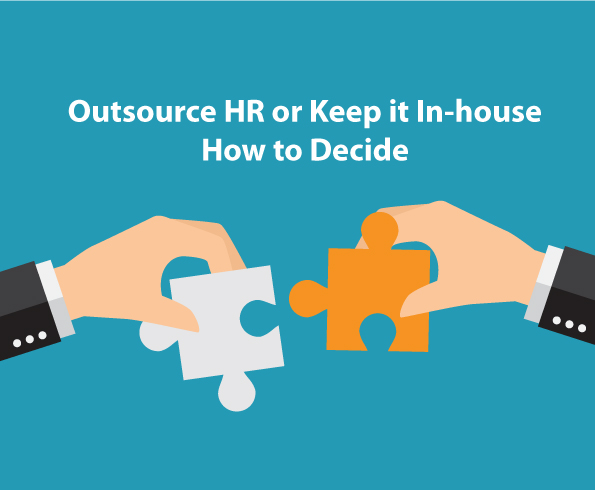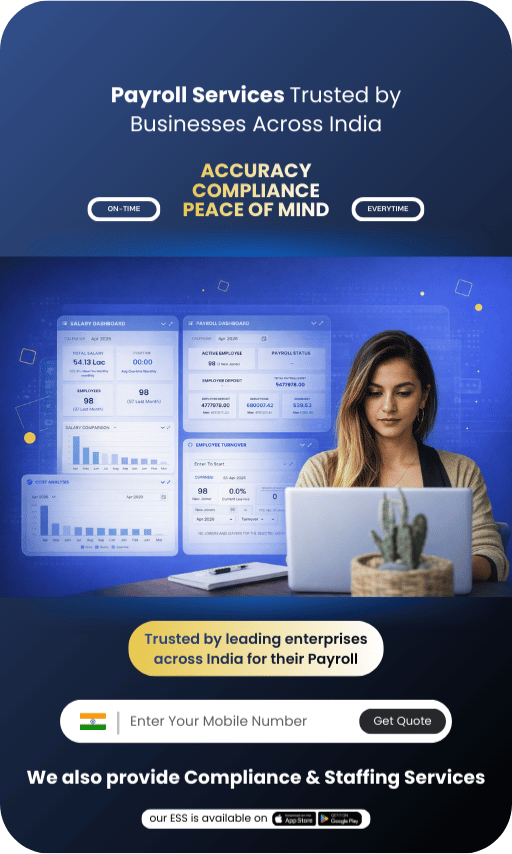The Human Resources (HR) department manages all employee related activities like new employee recruitment solutions & Selection, payroll Management, employee management and employee development
Outsourcing is engaging an external individual, agency or organization to run or manage a particular function or service within a business or organization. Many organizations and businesses have outsourced their secondary or support work to external vendors, as this enabled them to focus on their primary or main area of business.
Before we go to the point of ‘how to decide’ whether to outsource your HR function or not, let us take a quick look at the global HR outsourcing trends across the world. Mind you, different things work for different organizations. If an idea works for your competitor, the same may not work for you or vice versa. So one should not get carried away just by what is trending today.
Read more : (What is human resource management and why it is important?)
According to Deloitte’s global outsourcing survey of 2018, in the HR vertical, Robotic Process Automation (RPA) was adopted in 78% of the participating organizations and the ‘Satisfaction Rate’ was 78%. That’s a satisfaction rate of 100%! For example, by combining RPA and cognitive capabilities, many organizations are using HR bots to respond to new applications, answering queries, real-time status updating and supporting a candidate throughout the hiring process.
The survey brought out some of the 6 primary reasons that organizations go in for outsourcing which were:
- Performance improvement
- Reduce the time taken to reach interfacing / interaction point and increase the contact speed
- Error-reduction
- Streamlining processes
- New technology
- Cost reduction
Cost reduction came in at 6th position in this list. This meant that business processes improvement was far more important to organizations than cost reduction for companies who opted for outsourcing.
The 5 main concerns that organizations had with outsourcing were, data privacy and security, performance, vendor compliance, intellectual property loss and easy termination.
So, how do you decide whether or not outsource your HR function? Let us look at a few critical factors.
Size of the Organization
It’s all about size. If you are a start-up or a growing organization, you don’t need to add to your costs by outsourcing your HR function. Having said that small companies may not need to outsource their HR functions, the contrary is, that a small growing company’s HR needs may not be very demanding but critical. For example, a research company may recruit researchers and specialists. If investments and funding are available, it may be practical for a research company to outsource their entire HR function so that they can focus on their research work and business. But as the number of employees increase, you can think of outsourcing and start off by taking small steps in a phased manner. For example, when an organization is small and growing, the HR department can handle recruitments. But, if the company decides to scale up the number of employees in a quarter or a year, and it is clear that the current size and capability of the HR team will not be able to match up and deliver, it will make sense to outsource recruitment to an agency or consultants.
Cost
This is a straight forward factor and it all boils down to calculations. The simple question to be asked is whether certain activities or entire HR responsibilities are to be ‘owned and operated’ by the company or does it make better money and costing sense to outsource. HR function as a cost factor raises its head mostly after 3 to 5 years of a business or it also depends on the number of employees. If outsourcing is cheaper and cuts costs, the instant reaction would be to outsource. But business heads and entrepreneurs have to take into consideration various other factors also. For example, by outsourcing you may be cutting HR costs, but your company’s sensitive information about employees is handled by an external party. You need to ask yourself “Am I comfortable with this?”
Capability or Performance
You could be a small or growing company and during an audit or assessment, you find that your HR functions are performing under par. In such a situation, it may be a big task for a company to revamp the department, hire new people, train them and improve the performance of the HR function. In such a scenario, it is best to hire a competent HR vendor and outsource the function. On the flip side, if your HR department is doing a great job but is proving to be expensive, this situation also an apt time to outsource and reduce costs. Of course, it needs to be mentioned that under performance does not mean that all the staff are incompetent. Leadership, job allocation and distribution and many other factors determine performance. You need to go deeper and see if changing the manager or other adjustments will bring about an improvement rather than straightaway going for outsourcing.
Streamlining
If a company’s HR is overloaded, re-arranging or streamlining the department may be the best answer. For example, if a company has grown and become a 250 or 500 employees company, the employees HR self-service portal can be automated or outsourced and this may reduce on HR the load of routine tasks like address changes, updating profile, tax plans etc. In this example, if the company happens to be a global entity, it brings in another benefit of accessibility as employees can access and use the self-service portal from anywhere on the planet.
Read more : (The role and job responsibilities of an HR consultant)
Statutory and Legal
Another big reason you may want to think of outsourcing a part of your HR function is the statutory and legal compliances. Depending on the size of the HR team, total number of employees, expertise in the area, a company’s HR team may not be always abreast of latest rules, regulations and changes. In such a situation, the company can outsource this function to a proven vendor who has the necessary capability and experience in ensuring that your company adheres to and is compliant with all the HR and labor related rules and regulations. This becomes all the more important for global companies if they have offices and employees all over the world or an entrepreneur who wants to invest in a foreign country.
Lack of Internal Capability or Resources
If your company does not have people with the required experience or expertise in a particular function, outsourcing may be the best solution. A company may not have staff that are knowledgeable and can impart training to your employees. The options are identifying potential existing employees, train them to become trainers and guides or hire a new talent for the function or position. Both these take time and effort and results may not as the company expected. The third option is to outsource the training function to a capable and proven vendor who can deliver time-bound results and this happens with barely little effort from the company itself.
To sign off, there is or are no pre-set formula that helps in deciding whether or not your HR needs to be outsourced. To help you understand and provide you with information for you to make effective decisions, you need a partner like TalentPro.











